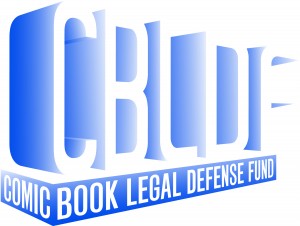UPDATED — The U.S. Supreme Court has just issued its decision in Brown v. EMA, striking down the California law that attempted to ban the sale and display of violent video games to minors in a 7-2 decision.
The majority decision, written by Justice Scalia, affirms that video games are protected by the First Amendment, and that the statute is invalid.
The Court writes:
The most basic principle—that government lacks the power to restrict expression because of its message, ideas,subject matter, or content, Ashcroft v. American Civil Liberties Union, 535 U. S. 564, 573—is subject to a few limited exceptions for historically unprotected speech, such as obscenity, incitement, and fighting words. But a legislature cannot create new categories of unprotected speech simply by weighing the value of a particular category against its social costs and then punishing it if it fails the test.
The court goes on to call the law’s aims “unprecedented and mistaken.”
The Comic Book Legal Defense Fund was active in opposing the law, filing its own Amicus Brief arguing that the California law was unconstitutional by citing a history of moral panics, most notably the anti-comics fervor that nearly dismantled the comics industry in the 1950s. The arguments presented in CBLDF’s brief were a significant portion of the discussion in oral arguments, and public discussion of this case.
UPDATE 1: The CBLDF’s arguments were also cited in the majority decision:
Many in the late 1940’s and early 1950’s blamed comic books for fostering a “preoccupation with violence and horror” among the young, leading to a rising juvenile crime rate. See Note, Regulation of Comic Books, 68 Harv. L. Rev. 489, 490 (1955). But efforts to convince Congress to restrict comic books failed. Brief for Comic Book Legal Defense Fund as Amicus Curiae 11–15.5 And, of course, after comic books came television and music lyrics.
The court more explicitly cites the comics industry’s history put forward in the brief with the footnote:
The crusade against comic books was led by a psychiatrist, Frederic Wertham, who told the Senate Judiciary Committee that “as long asthe crime comic books industry exists in its present forms there are nosecure homes.” Juvenile Delinquency (Comic Books): Hearings before the Subcommittee to Investigate Juvenile Delinquency, 83d Cong., 2dSess., 84 (1954). Wertham’s objections extended even to Supermancomics, which he described as “particularly injurious to the ethical development of children.” Id., at 86. Wertham’s crusade did convince the New York Legislature to pass a ban on the sale of certain comic books to minors, but it was vetoed by Governor Thomas Dewey on the ground that it was unconstitutional given our opinion in Winters, supra. See People v. Bookcase, Inc., 14 N. Y. 2d 409, 412–413, 201 N. E. 2d 14, 15–16 (1964).
CBLDF Executive Director Charles Brownstein says, “We’re extremely pleased that the Court’s decision preserves the First Amendment rights of the users and creators of video games, and that they resisted California’s desire to establish new categories of unprotected speech. We’re also gratified that our discussion of the comics industry’s painful experience with moral panic and legislative meddling helped inform the positive outcome we see this morning.”
More news and analysis on this case will be presented throughout the day.
Please support the CBLDF’s coverage and defense of free speech issues like this by making a donation today!
Read more →


